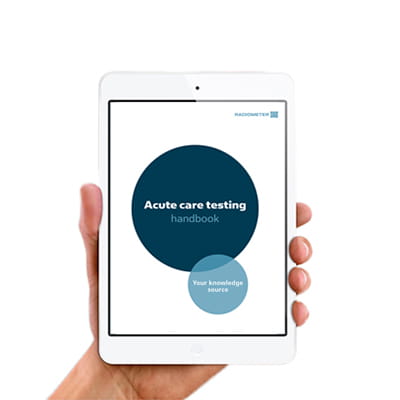Printed from acutecaretesting.org
October 2005
A new tool to combat severe hemorrhage
Summarized from Boffard K, Riou B, Wareen B et al. Recombinant Factor VIIa as adjunctive therapy for bleeding control in severely injured trauma patients: two parallel randomized, placebo-controlled, double-blind clinical trials. J Trauma 2005; 59: 8-18.
Massive hemorrhage is a major cause of morbidity and mortality among critically ill patients. Conventional treatment is based on surgical control of bleeding and transfusion of blood products including red cells, platelets and fresh frozen plasma. Despite optimal conventional care, bleeding sometimes proves impossible to control.
Recombinant factor VIIa (rFVIIa) is a drug licensed specifically for control of bleeding in hemophilia. Over the past six years there have been an increasing number of case reports in which rFVIIa has been successfully used off licence to halt bleeding in non-hemophilia patients who were on the point of death as a result of intractable hemorrhage.
Wider use of this drug as an additional treatment for the routine care of all patients suffering massive hemorrhage, not just those who have failed to respond to conventional therapy, is now being considered in a number of clinical trials.
One such trial, focusing on 301 trauma patients, was recently reported. Trauma victims who had received at least 6 units of red blood cells (RBCs) within 4 hours of admission and were expected to require more blood products were randomly and blindly assigned to receive either three injections of rFVIIa or three placebo injections.
In all other respects, treatment was conventional. Administration of rFVIIa had the important beneficial effect of reducing the number of red-cell transfusions required by on average 2.6 units of RBC. Massive red-cell transfusion, (defined as transfusion of > 20 units of RBC) was required by 33 % of patients in the placebo group but only by 14 % of those who had been given rFVIIa.
One of the principal concerns about this pro-coagulant drug has been a possible increased risk of thrombosis. There was, however, no increased incidence of adverse events, including thromboembolism, among those given rFVIIa.
There was a trend towards reduction in mortality and incidence of critical complications (sepsis, acute respiratory distress) among those given rFVIIa. In summary, the study has demonstrated both the efficacy and safety of rFVIIa among severely injured trauma patients.
May contain information that is not supported by performance and intended use claims of Radiometer's products. See also Legal info.
Acute care testing handbook
Get the acute care testing handbook
Your practical guide to critical parameters in acute care testing.
Download nowScientific webinars
Check out the list of webinars
Radiometer and acutecaretesting.org present free educational webinars on topics surrounding acute care testing presented by international experts.
Go to webinars







